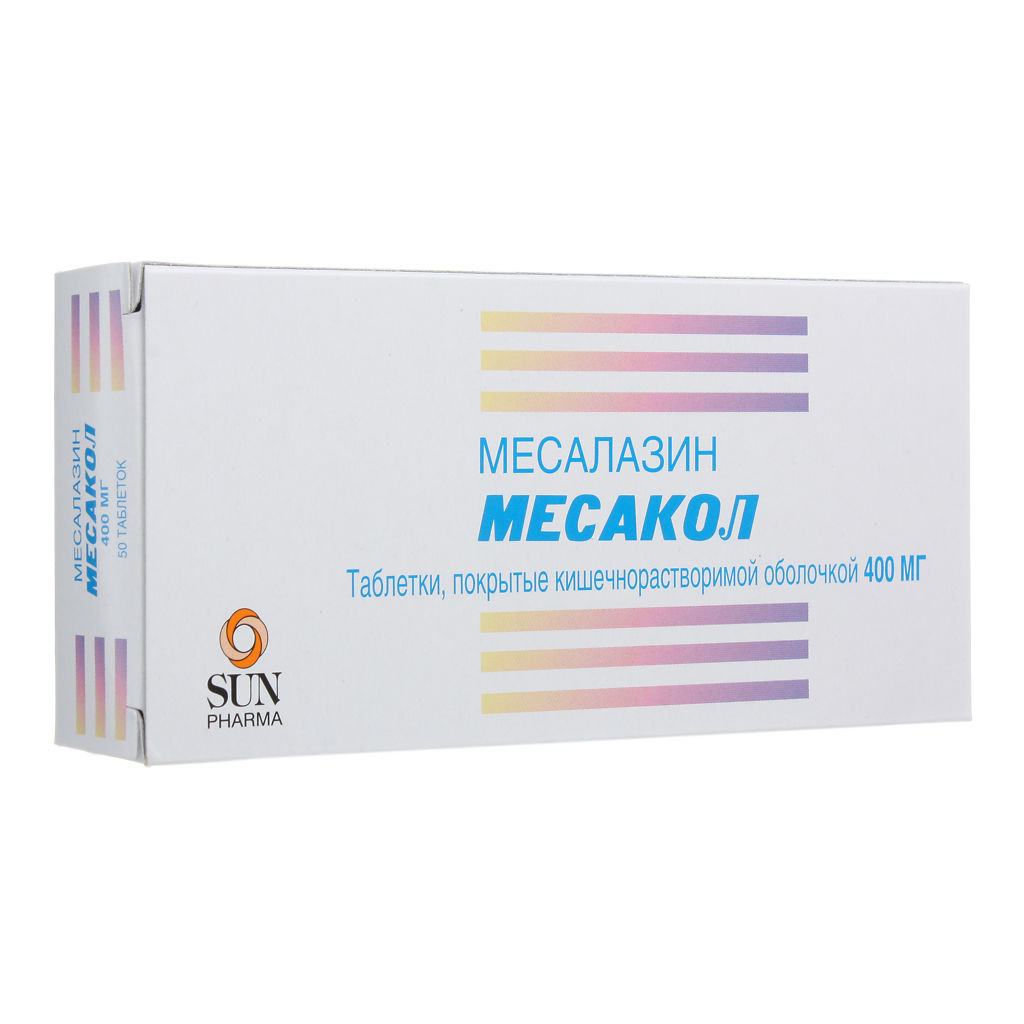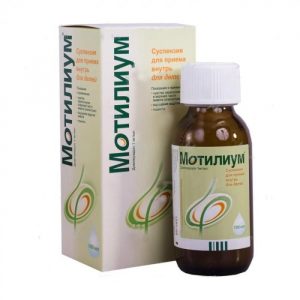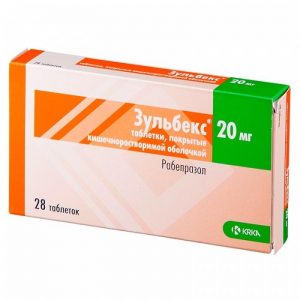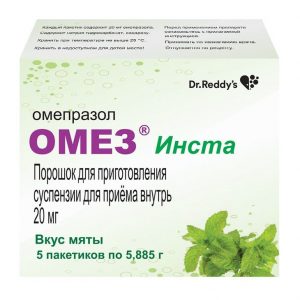Description
release form coated tablets
packaging 50 pcs
Pharmacological action of
Pharmacodynamics
It has a local anti-inflammatory effect due to inhibition of neutrophilic lipoxygenase activity and the synthesis of prostaglandins and leukotrienes. It inhibits migration, degranulation, neutrophil phagocytosis, as well as the secretion of immunoglobulins by lymphocytes. It has an antibacterial effect against some cocci and Escherichia coli (manifested in the large intestine).
Pharmacokinetics
After taking the drug inside, mesalazine begins to be released after 110-170 minutes, after 165-225 minutes the tablets completely dissolve. Due to the presence of a special membrane, mesalazine is released mainly in the large intestine (60-79%). 15-30% of the active substance is released in the jejunum, at the same time, only about 10% enters the systemic circulation. Plasma concentration is low. In the body, mesalazine is metabolized, forming N-acetyl-5-aminosalicylic acid. Communication with plasma proteins – 43%, and N-acetyl-5-aminosalicylic acid – 73-83%. The drug and its metabolite penetrate into breast milk. The elimination half-life is 0.5-2 hours, depending on the dose taken, the metabolite is 5-10 hours. Excretion by the kidneys (50%), through the intestines (40%). Cumulates in chronic renal failure.
Indications
Nonspecific ulcerative colitis, Crohn’s disease (prevention and treatment of exacerbations).
Contraindications
Hypersensitivity to salicylates and other components of the drug, blood diseases, peptic ulcer and duodenal ulcer, glucose-6-phosphate dehydrogenase deficiency, hemorrhagic diathesis, severe renal / hepatic failure.
Caution – hepatic and / or renal failure.
Pregnancy and lactation
There is currently no clear information on the safety of Mesacol in pregnant women. Mesacol is prescribed to pregnant women only if the possible benefit to the woman exceeds the potential risk to the fetus. When prescribing Mesacol, a nursing woman should stop breastfeeding.
Composition
1 tablet contains as active substance: mesalazine – 400 mg
Excipients: calcium hydrogen phosphate dihydrate, corn starch, microcrystalline cellulose, hypromellose 2208, povidone K 90, purified talc, silicon dioxide colloid sodium carboxymethyl starch (sodium starch glycolate) (type A), methacrylic acid and methyl methacrylate copolymer type C , (Eudragit L-100-55), methacrylic acid and methyl methacrylate copolymer type B , (Eudragit S-100), dibutyl phthalate, titanium dioxide, iron oxide red, macrogol 6000 (polyethylene glycol 6000).
Dosage and Administration
Inside. With exacerbation of the disease, 1-2 tablets (400-800 mg) 3 times a day for 8-12 pedals. For the prevention of exacerbations, 1 tablet (400 mg) is prescribed 3 times a day. Mesacol tablets should be taken whole, after a meal, washed down with plenty of water.
For children, mesalazine is prescribed as a suspension, suppository or microclyster.
Side effects of the digestive system: nausea, vomiting, heartburn, diarrhea, especially when using high doses of the drug (however, diarrhea is not always a result of side effects of the drug, and it can be a manifestation of the underlying disease) decreased appetite, abdominal pain, dry mouth, stomatitis, increased activity of liver transaminases in plasma, hepatitis, pancreatitis.
From the cardiovascular system: palpitations, tachycardia, arterial hypertension or hypotension, chest pain, shortness of breath. There are separate reports on the development of pericarditis, cardiac conduction disorders.
From the central nervous system: headache, tinnitus, dizziness, polyneuropathy, tremor, cramps, insomnia, depression, hallucinations.
From the genitourinary system: proteinuria, hematuria, crystalluria, oliguria, anuria, nephrotic syndrome, oligospermia. Some cases of impotence are described.
Co side of the hematopoietic system: eosinophilia, anemia (hemolytic, megablastic, aplastic), leukopenia, agranulocytosis, thrombocytopenia, hypoprothrombinemia.
Allergic reactions: skin rash, itching, erythema, dermatosis, bronchospasm.
Other: weakness, mumps, photosensitivity, lupus-like syndrome, alopecia, decreased production of tear fluid.
Drug Interaction
Enhances the hypoglycemic action of sulfonylurea derivatives, glucocorticosteroid ulcerogenicity, methotrexate toxicity. Reduces the activity of furosemide, spironolactone, sulfonamides, rifampicin. Increases the effect of anticoagulants, increases the effectiveness of uricosuric drugs (tubular secretion blockers). Slows absorption of cyancobapamine.
Overdose
Symptoms: nausea, vomiting, gastralgia, weakness, drowsiness.
Treatment: gastric lavage, prescription laxative, symptomatic therapy.
Storage conditions
In the dark place at a temperature of no higher than 25 ° C.
Shelf suitability
4 Year
Deystvuyuschee substances
mesalazane
s17 vocational
Dosage form
Dosage form
tablets
Co Pharmaceutical Industries Ltd, India




